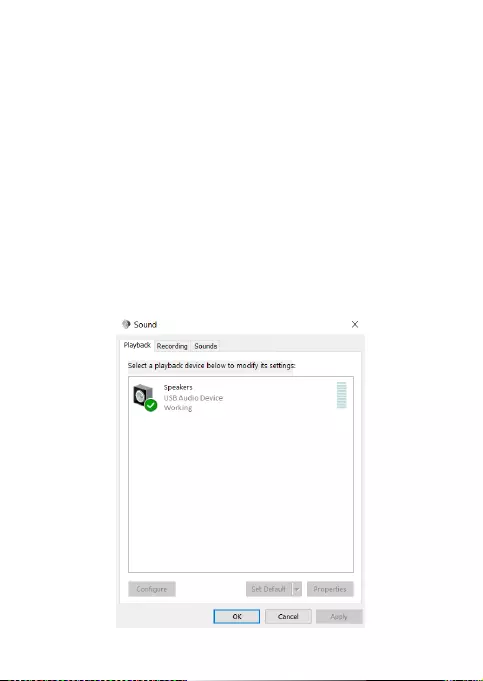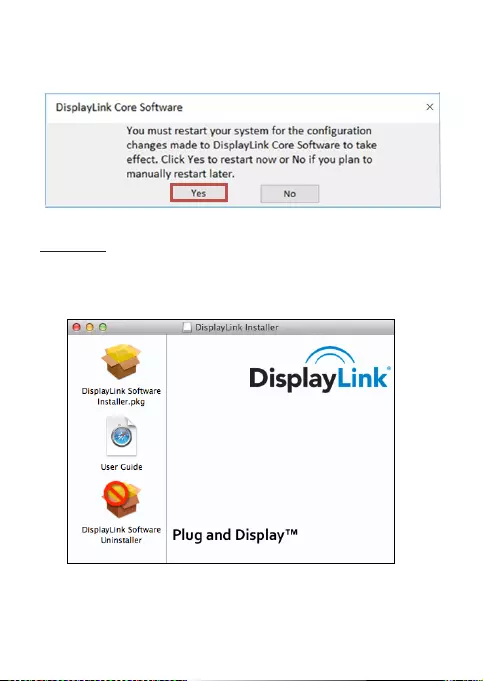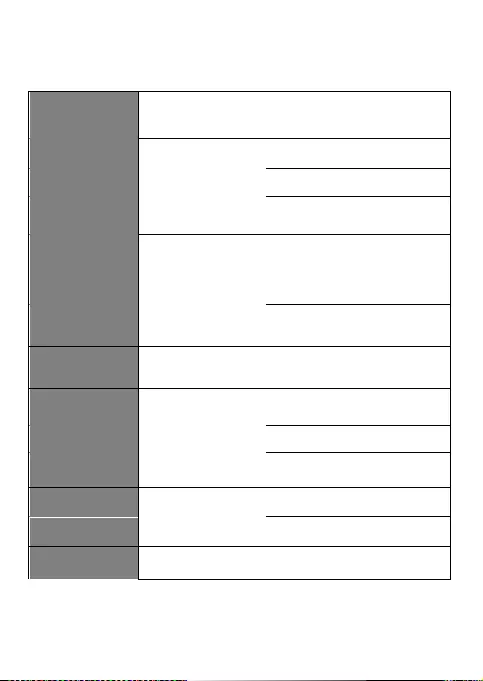Table of Contents
Origin Storage DELL-D6000-OS User Manual
Displayed below is the user manual for DELL-D6000-OS by Origin Storage which is a product in the Notebook Docks & Port Replicators category. This manual has pages.
Related Manuals

USB-C Triple
4K Dock

i
Table of Contents
SAFETY INSTRUCTIONS ......................................... 3
COPYRIGHT ........................................................ 3
TRADEMARKS ..................................................... 3
REGULATORY COMPLIANCE .............................. 4
FCC CONDITIONS ................................................ 4
CE .................................................................... 4
WEEE INFORMATION .......................................... 4
INTRODUCTION ................................................ 5
FEATURES .......................................................... 6
PACKAGE CONTENTS ............................................ 6
SYSTEM REQUIREMENTS ....................................... 6
PRODUCT OVERVIEW........................................ 7
FRONT ............................................................... 7
REAR ................................................................ 8
CONNECTION .................................................... 9
VERIFYING THE INSTALLATION ........................ 14
DISPLAY CONFIGURATION ............................... 17
UTILITY SETTINGS .............................................. 17
DESCRIPTION OF THE SETTINGS ............................ 18
MULTI-MONITOR CONFIGURATION ....................... 20

ii
EXTENDED MODE .............................................. 22
TROUBLE SHOOTING .......................................... 23
MIRROR MODE ................................................. 23
SET THE PRIMARY MONITOR ............................... 24
AUDIO CONFIGURATION ................................. 25
UNINSTALL THE DRIVER .................................. 27
SPECIFICATION ................................................ 28

Before attempting to connect, operate or adjust this product,
please save and read the User's Manual completely. The style
of the product shown in this User's Manual may be different
from the actual unit due to various models.
Safety Instructions
Always read the safety instructions carefully:
■ Keep this User’s Manual for future reference
■ Keep this equipment away from humidity
■ If any of the following situation arises, get the equipment
checked by a service technician:
• The equipment has been exposed to moisture.
• The equipment has been dropped and damaged.
• The equipment has obvious sign of breakage.
• The equipment has not been working well or cannot get it
to work according to the User’s Manual.
Copyright
This document contains proprietary information protected by
copyright. All rights are reserved. No part of this manual may be
reproduced by any mechanical, electronic or other means, in
any form, without prior written permission of the manufacturer.
Trademarks
All trademarks and registered trademarks are the property of
their respective owners or companies.

Regulatory Compliance
FCC Conditions
This equipment has been tested and found to comply with Part
15 Class B of the FCC Rules. Operation is subject to the
following two conditions: (1) This device may not cause harmful
interference. (2) This device must accept any interference
received and include interference that may cause undesired
operation.
FCC Caution: Any changes or modifications not expressly
approved by the party responsible for compliance could void the
user’s authority to operate this equipment
CE
This equipment is in compliance with the requirements
of the following regulations: EN 55032/EN 55024: CLASS B
WEEE Information
For EU (European Union) member users: According to the
WEEE (Waste electrical and electronic equipment) Directive, do
not dispose of this product as household waste or commercial
waste. Waste electrical and electronic equipment should be
appropriately collected and recycled as required by practices
established for your country. For information on recycling of this
product, please contact your local authorities, your household
waste disposal service or the shop where you purchased the
product.

Introduction
The USB-C Triple 4K Dock is designed for extra
connectivity demands. With the USB-C Docking Station,
you can extend the connection of a computer to more
USB peripherals, ethernet networks, speakers, and the
microphone via USB-C interface. The USB-C plug is
also reversible.
Adopting PD Charging technology, upstream charging
function through USB-C interface, you can charge the
docking station. With the built-in USB3.0 ports, the
docking station enables you to enjoy the super speed
data transmission between USB peripherals.
In addition, the docking station is equipped with three
display video outputs. With triple Ultra HD display
simultaneously, the docking station allows you to split
up the content to triple display devices when the system
supports the function. Enhanced expansion capability,
this docking station with video is the most versatile
accessory that also complements your home or office
space.
․Incorporates HDMI○
R technology

Features
■ Enabling Triple 4K display extension
■ Upstream port
- USB3.0 Type-C port x1
■ Downstream port
- USB3.0 Type-A ports (5V/0.9A) x4
- USB3.0 Type-A port (Fast Charging) x1
- USB3.0 Type-C port x1
■ Support audio 2.1 channel
■ Support Gigabit Ethernet
■ Support DisplayPort (4096 x 2160@60Hz)
■ Support 5K (connect to 2 DP displays simultaneously)
■ Support HDMI (3840x2160@30Hz)
■ Support PD Charging (for NB)
- 20/15/12/9/5V@3A, up to 65W
Package Contents
■ USB-C Triple 4K Docking Station x1
■ USB-C Cable (length: 100 cm) x1
■ Power Adapter (20V/6.75A) x1
System Requirements
Supported Operating System:
■ Windows®10 ■ Mac OS®

Product Overview
Front
1 2 3 4 5 6 7
1
3
Item
Description
1.Power button
Switch to power on /off
2. Power indicator
LED shows blue when power on
3. USB connection
indicator
LED shows green when USB is
connected
4. USB-C port
Connect to USB-C device only
5. USB 3.0 port
(Type-A)
Connect to the USB 3.0 device and this
po
rt supports fast charging
6. Headphone jack
Connect to a speaker or headphone
7. Microphone jack
Connect to a microphone

Rear
6
7
8 9 10 11 12 13
10
Item
Description
8. Power jack
Connect to power adapter
9. USB-C port
Connect to the USB-C port of a
computer
10. RJ45 port
Connect to an Ethernet
11. HDMI connector
Connect to a HDMI monitor
12. DP connector x2
HDMI connector x2
Connect to DP or HDMI monitors
13. USB 3.0 port x4
(Type-A)
Connect to USB3.0 devices

Connection
To connect the USB peripherals, ethernet, speaker, and
microphone, follow the illustrations below to connect the
corresponding connectors.

Windows® 10
1. Click Install to execute the installation procedure.
Note:
1. Please note the DisplayLink driver is
required for this device under Windows®.
2. The following strings and screenshots
may vary slightly form each operation
system, and the driver version is subject
to change without notice.

2. Connect the Docking Station to a computer after
the driver installation is completed. For connection
details, refer to the chapter of Connection.
Mac OS®
1. Locate and double-click the dmg file to start the
installation, and click Continue.

2. Click Continue > Agree.
3. Click Install > Continue Installation.

4. Please wait while the installation is in process.
5. Click Restart to complete the installation.
6. Connect the docking station to a computer after the
driver installation is completed. For connection
details, refer to the chapter of Connection.

Verifying the installation
When the installation is completed, follow the steps
below to verify if the device is properly installed.
Windows® OS
1. Access Device Manager
Windows® 10
Settings > Devices > Connected Devices
2. In the Device Manager window, a device named
USB…Dock should be listed.

Mac OS®
1. Access the Hardware list:
Click on the Apple sign at the top left corner of the
screen.
2. Click About This Mac> More Info…> System
Report…

3. In the System Report window, a device named
USB…Dock should be listed.

NOTE: Concerning for Windows® OS, if there is a
(question) or (exclamation) mark next to the item,
the device is not properly installed. Please delete the
item, unplug the device and repeat the installation
steps.
Display configuration
Utility settings
The supplied utility allows configuring the display mode,
screen rotation, screen resolution, and physical
arrangement of your monitors.
1. Click utility icon in Windows System Tray.
NOTE: If you cannot find the icon in Windows System
Tray, click arrow icon to bring up icon list to find it.
2. Select a preferred option.

Description of the settings
Options
Description
Displaylink
manager
Enable the Windows screen resolution
page.
Check for updates
Check the latest driver and download
if available.
Display Setting Submenu
Screen Resolution
Click to select an available resolution.
Note that this function is invalid in
mirror mode, as the resolution is
defined as the resolution of the
primary monitor.
Screen Rotation Rotate the screen according to the
desired orientation.
Extend Extend the screen according to the
desired orientation.
Extend to The cursor can extend to desired
screen via left/right/above/below way
moving.
Set as Main
Monitor
Set this screen to the main screen.
Notebook Monitor
Off
Switch the add-on monitor to the main
display and turn off the screen of the
laptop.
NOTE: This function works only when
one add-on monitor is connected. This

option will also only appear on laptop.
Mirror Duplicate the primary monitor to the
monitor which connects with the
docking station.
Off
Turn off the monitor
Optimize for video Optimize the video quality when
playing back. Text may appear less
clear when enabling.
Fit to TV
Adjust the size of Windows Desktop
on the TV.
NOTE:
This function works only when one
add-on monitor is connected.
Besides, this option will also only
work in extended mode. The add-on
monitor will change to the extended
mode if selecting this option while in
mirror mode.
Audio Setup Enable the Windows audio
configuration page. This function
works only in specific models.
Video Setup Enable the Windows screen
resolution page.

Multi-monitor configuration
Extra DisplayPort and HDMI monitors can be connected
through the Docking Station if one monitor is already
connected to the PC directly. Once the extra monitors
are connected, it can be configured to use either “mirror
mode”, “extended mode” or set to be the primary display.
Windows® 10
Position the mouse anywhere on the Windows
Desktop,
Right-click and select Display Settings.

Alternatively, click utility icon in the Windows
System Tray, and then select DisplayLink Manager or
Video Setup.

Extended mode
1. Refer to the Multi-monitor configuration section to
open the configuration page.
2. Select the preferred monitor at the top of the page.
3. Check Multiple Displays > Extend these displays.
4. Click Apply to confirm and close the settings screen.
5. Once the setting is completed, simply drag and drop
the application icons or the opened windows to the
add-on monitor. However, some applications may not
support to display on the extended desktop.

Trouble Shooting
a. Cursor disappeared
If the status remains in the extended mode but the
docking station is disconnected, the desktop will still be
panned to the add-on monitor. The cursor may not be
found on the primary monitor in such a case. If it
happens, connect the add-on monitor through the
docking station again or keep moving the mouse.
b. Video playback in extended mode
If the video or DVD playback quality is poor or low
performance in extended mode, please playback on the
primary monitor instead of the add-on monitor.
Mirror mode
1. Refer to the Multi-monitor configuration section to
open the configuration page.
2. Select the preferred monitor at the top of the page.
3. Check the Multiple Displays > Duplicate these
displays.
4. Click Apply to confirm and close the settings screen.

Set the Primary Monitor
1. Refer to the Multi-monitor configuration section to
bring up the configuration window.
2. Select the preferred monitor at the top of the page.
3. Check the box Make this my main display.
4. Click Apply to confirm and exit.
Note: For some computers, you may need to
disable the main display by unchecking
the box of Extend the desktop onto this
monitor or Extend my Windows
desktop onto this monitor.

Mac OS®
1. Click on the Apple sign at the top left corner of the
screen and select System Preferences…/
Displays.
2. To rearrange the displays, drag them to the desired
position.
To relocate the menu bar, drag it to a different
display.
To switch to Mirror Mode, tick the box in front of
Mirror Displays.

Audio configuration
By default, when the docking station is connected to a
computer, the audio configuration may be changed to
USB (Multimedia) Audio Device automatically (this
setting depends on models). If it does not work, follow
the steps below to setup.
1. Open Control Panel and then select the hardware
and sound icon.
2. Click Sound > Manage audio devices and then
select USB Audio Device or Displaylink Audio.

Uninstall the driver
1. Follow the instructions to find the driver path, and
then right-click on DisplayLink Graphics to uninstall
the driver.
2. Windows® 10
Control Panel > Programs and Features > Uninstall
and change the programs
3. Click Yes to confirm the uninstallation.

4. Click Yes to restart your computer. You can also
disconnect the video connection now.
Mac OS®
Open the driver and click DisplayLink Software
Uninstaller.

Specification
Connector
Upstream
USB3.0 Type-C female
connector x1
Video Output
DP connector x2
HDMI connector x3
Triple displays
simultaneously
Downstream
USB3.0 Type-A female
connector x5 (one front
port supports fast
charging)
USB Type-C female
connector
Power
Power Mode
Self-powered
(Power adapter)
Video
Display Mode
Supported
Extended Desktop
(Default)
Mirrored Desktop
Primary Display
OS Supported
Windows® 10
Mac OS®
Physical
Properties
Housing
PC+ABS (Plastic)

Color
Black
Working
Environment
Operation
Temperature
0°C - 40°C
Storage
Temperature
-20°C - 70°C
Compliance
CE, FCC
